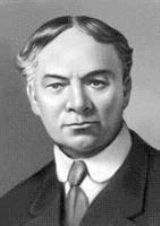
.
Jerome was born in Caldmore
, Walsall, England, and was brought up in poverty in London. He attended St Marylebone Grammar School
Other works include the essay collections Idle Thoughts of an Idle Fellow
and Second Thoughts of an Idle Fellow; Three Men on the Bummel
, a sequel to Three Men in a Boat; and several other novels.
Jerome was the fourth child of Jerome Clapp (who later renamed himself Jerome Clapp Jerome), an ironmonger and lay preacher who dabbled in architecture, and Marguerite Jones.
There are the goods; if you want them, you can have them. If you do not want them, they would almost rather that you did not come and talk about them.![]()
It is impossible to enjoy idling thoroughly unless one has plenty of work to do. There is no fun in doing nothing when you have nothing to do. Wasting time is merely an occupation then, and a most exhausting one. Idleness, like kisses, to be sweet must be stolen.![]()
Love is like the measles; we all have to go through it. Also like the measles, we take it only once...No, we never sicken with love twice. Cupid spends no second arrow on the same heart.![]()
A boy's love comes from a full heart; a man's is more often the result of a full stomach. Indeed, a man's sluggish current may not be called love, compared with the rushing fountain that wells up when a boy's heart is struck with the heavenly rod. If you would taste love, drink of the pure stream that youth pours out at your feet. Do not wait till it has become a muddy river before you stoop to catch its waves.![]()
There have been a good many funny things said and written about hardupishness, but the reality is not funny, for all that. It is not funny to have to haggle over pennies. It isn't funny to be thought mean and stingy. It isn't funny to be shabby and to be ashamed of your address. No, there is nothing at all funny in poverty — to the poor.![]()
All is vanity and everybody's vain. Women are terribly vain. So are men — more so, if possible.![]()
We are so bound together that no man can labor for himself alone. Each blow he strikes in his own behalf helps to mold the Universe.![]()
Contented, unambitious people are all very well in their way. They form a neat, useful background for great portraits to be painted against, and they make a respectable, if not particularly intelligent, audience for the active spirits of the age to play before. I have not a word to say against contented people so long as they keep quiet.![]()
It always is wretched weather according to us. The weather is like the government — always in the wrong. In summer-time we say it is stifling; in winter that it is killing; in spring and autumn we find fault with it for being neither one thing nor the other and wish it would make up its mind...We shall never be content until each man makes his own weather and keeps it to himself.![]()
Swearing relieves the feelings--that is what swearing does. I explained this to my aunt on one occasion, but it didn't answer with her. She said I had no business to have such feelings.![]()

